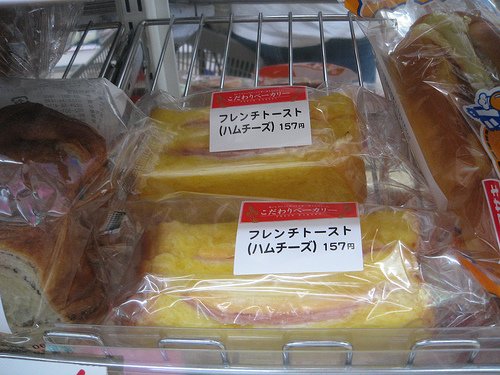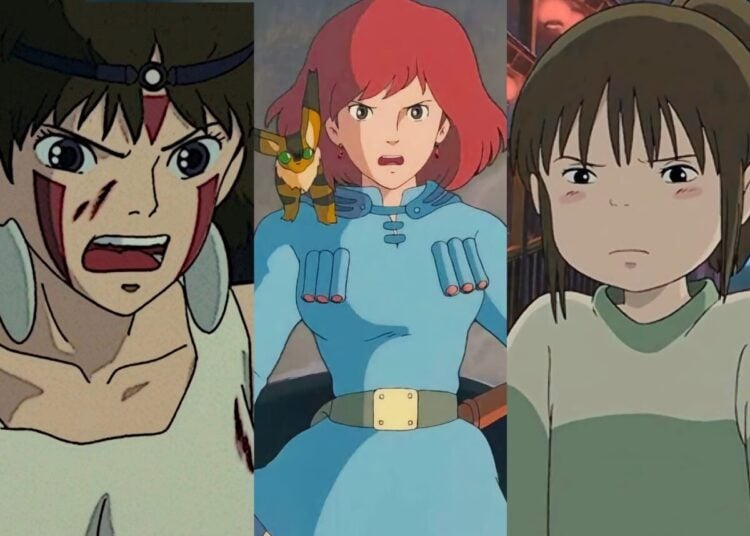No matter how long a person lives in Japan, there are always things that can bring on what expats here call a “Japan moment,” the feeling of utter amazement at something you’ve just encountered. Maybe it’s something cute, like a big truck playing the Main Street Electrical Street Parade song as it backs up instead of a boring beep-beep-beep sound, or that first time seeing the plastic Colonel Sanders in front of KFC wearing his “Santa Wear” (Santa Claus Suit). Maybe it’s a food item, like strawberry and whipped cream sandwiches, or one I saw a few days ago, ham and cheese on French Toast, complete with syrup pre-applied to the bread. You never know what will bring on that sense of “only-in-Japan” next — driving through an extremely rural town and coming across a replica of the American Statue of Liberty? Seeing a nondescript building with “Oh!” carefully painted on it? Meeting someone who has taught English for 30 years yet has never been outside of Japan, and who asks you “Where is your domicile?” instead of “Where do you live?” Of course, it’s always important to remember Obi Wan’s Law, that our perceptions depend on our point of view. Once we were having a rare feast of fajitas, and we’d invited a friend from Peru. Silly American that I am, I assumed that he’d be familiar with Mexican food, but it was all totally alien to him, and he’d never even seen a Mexican tortilla nor did he have any idea how to eat one.

There’s another minor area of “gaijin shock” that has to do with listening the radio. The other day I was driving in my Mazda “Road-star” (Miata), and thought I’d give FM Gunma a listen. The announcer was about to play a famous song by singer Momoe Yamauguchi called Cosmos, supposedly the “most requested song in the Autumn.” It was quite a beautiful tune, or it would have been, if the girl on the radio would have been so kind as to shut up and let her listeners hear the song. Instead, she yapped away, giving a detailed background of the song (it topped the charts in 1977), talked about the singer’s career (debuted in 1972 on a talent show, retired in 1980, singing her live single “thank you for your kindness, thank you for your tenderness” amid many tears), and read some of the requests from listeners asking to hear the song. Call me a picky foreigner, but if the song’s that good I’d like to actually hear it, not some radio personality talking while it’s playing. I’ve asked Japanese people about this, and have been told “the Japanese don’t listen to music all that carefully” and no one really cared if someone was talking while a song was playing. This is probably why no one but me takes exception to the Christmas music that invariably plays in February…
Oh goody, I managed to find the song in question in case you’re dying to know what kind of song it is. The link is here (WMV and Windows required, it looks like, since I had to run this page in Parallels on my MacBook Pro to get it to work).
All societies go through changes as the decades march by, and Japan is no exception. While the U.S. has wrestled with shifts in the “post” nuclear family due to increases in divorce and single parenting, one rock that has helped Japan’s society is the importance of the jikka (JI-kah, pronunced with a small pause between the syllibles, a “small tsu”). Literally meaning “real house,” a jikka is the house where one’s parents live, or where they lived if they’ve passed on. It’s also the location of the family’s Buddhist Altar, a wooden altar with a figure of Buddha inside that’s used for saying prayers and lighting incense for dead ancestors and let them know they haven’t been forgotten. At certain times during the year, mainly New Years’ Day and the August Obon holidays, people return home to be with family at their jikka, and so on, not unlike going home for Thanksgiving but with a lot more cultural formality.
For fans of the interactive dating-sim games published by Hirameki International, we’re happy to announce that Yo-Jin-Bo -The Bodyguards- is in stock and shipping now. A great English-translated anime game for your PC or Mac, in this game you take on the role of Sayori, an ordinary high school student who is magically transported back in time to Japan in the feudal ages. Your goal is to save the lovely Hatsuhime, princess of the Mochizuki clan, from assassination, and you’ll have three eccentric but loyal bodyguards (“yojimbo” in Japanese) to help. It’s an incredibly deep game with a huge cast of interesting characters and a great story. Get your copy now!
Remember, now is the best time to select your 2007 Japanese calendars, since we’ve just gotten in a huge volley of items in stock, including many calendars that won’t be coming in again before they sell out for the season. In case you were wondering what the top-selling calendars are this year, we’ll tell you. For anime calendars, the Ghibli calendar is in the lead as usual, followed by the Shirow Masamune offering (the first in several years) and strong showings by Negima and Bleach. For traditional and art calendars, the beautiful kimono paintings of Haruyo Morita is in the lead, followed by Traditional Scroll Illustrations, the Joy of Bento and Famous Castles of Japan. We sell plenty of cute Japanese idol calendars, and this year Aki Hoshino, Yuko Ogura and Yua Aida are all doing great. Finally, “other” calendars that are very popular this year include Domo-kun, Gackt and that old standby, Japanese women in traditional onsen hot springs. Check out our stock of calendars now!















